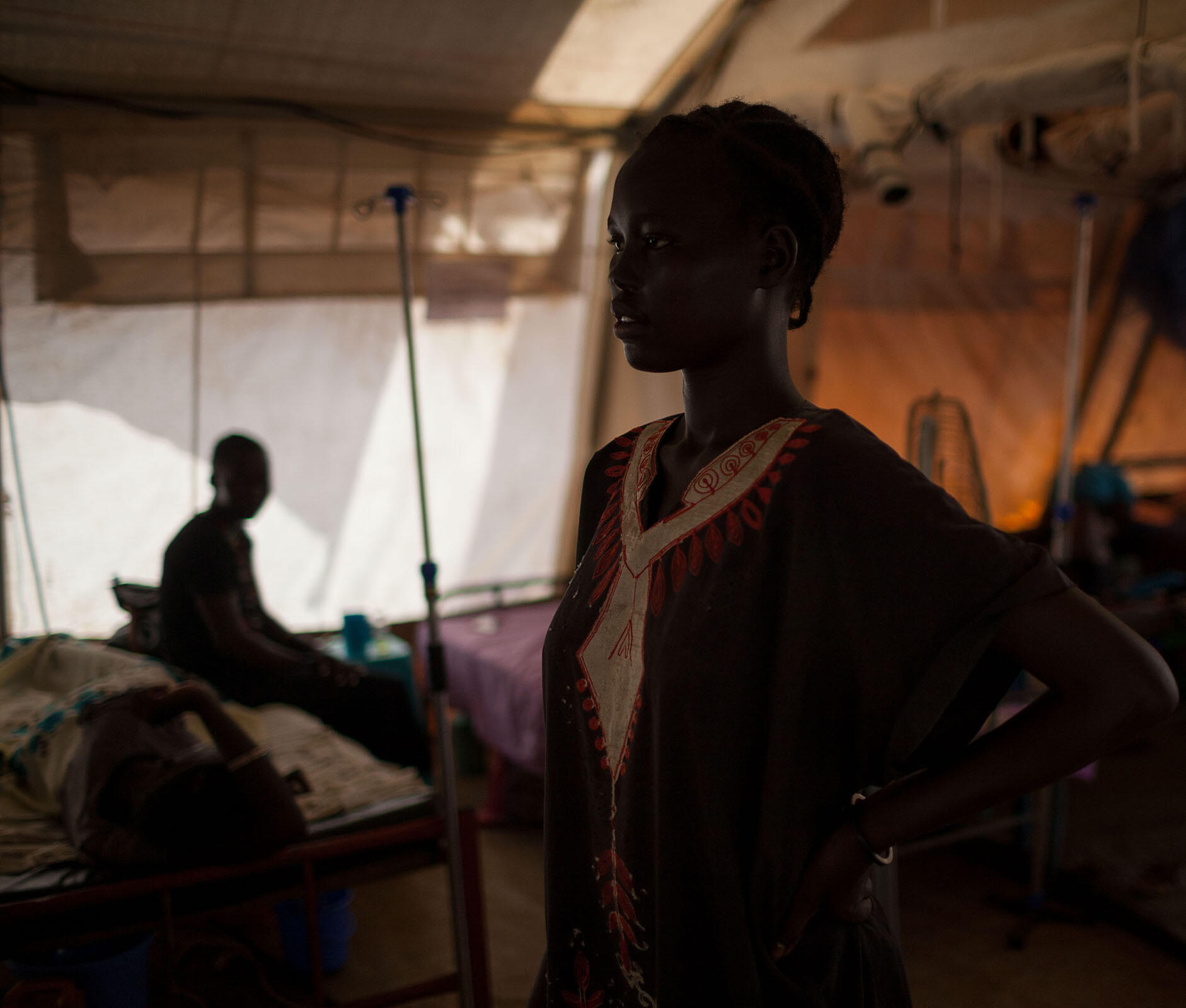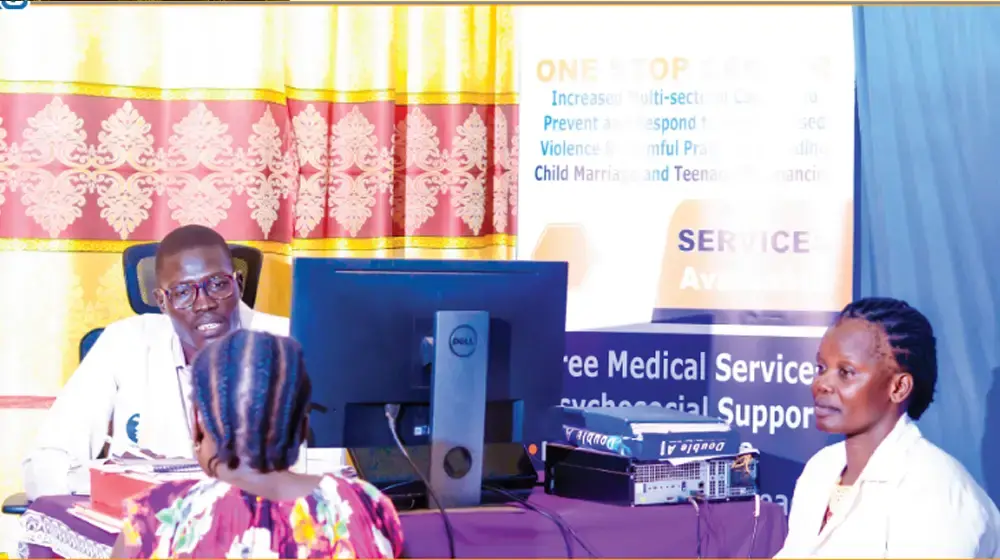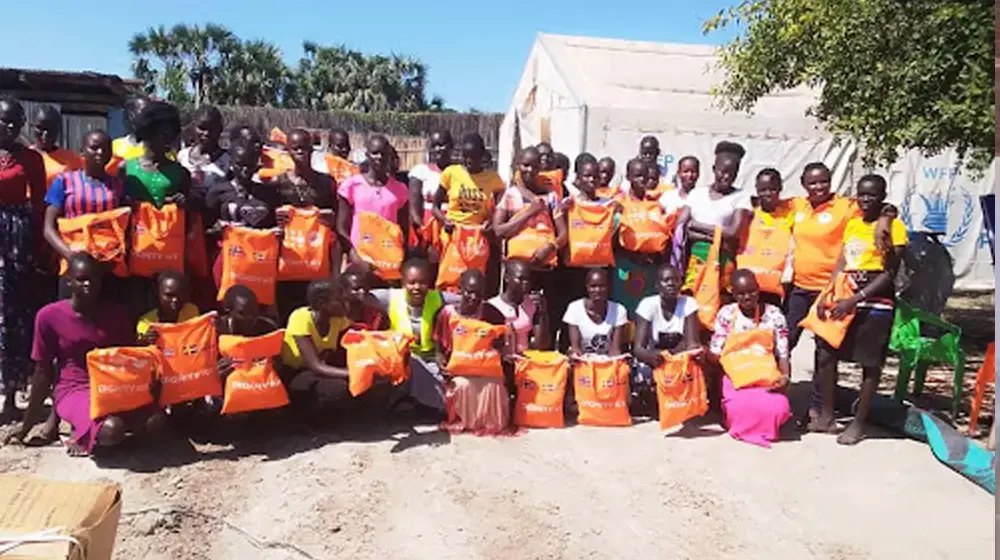Juba, South Sudan – Vice President Rebecca Garang said various sectors have to act together to end gender-based violence, including harmful traditional practices, in South Sudan.
At the launch of the State of World Population 2020 Report in Juba, the only female Vice President of South Sudan said the high prevalence of child marriage and gender-based violence in the country should spur “immediate actions to end GBV and the harmful practices that impede the rights and dignity of women and girls.”
Every year, millions of girls are subjected to practices that harm them physically and emotionally, with the full knowledge and consent of their families, friends and communities, according to the State of World Population 2020, released by UNFPA, the United Nations sexual and reproductive health agency.
At least 19 harmful practices, ranging from breast ironing to virginity testing, are considered human rights violations, according to the UNFPA report, which focuses on the three most prevalent ones: female genital mutilation, child marriage, and extreme bias against daughters in favour of sons.
In South Sudan, the most prevalent of these harmful practices is child marriage, with 45 per cent of girls married off before the age of 18.
“Such practices may be explained under the guise of tradition, religion or culture. Women and girls have fewer choices as a result, and are more likely to have choices made for them that put them under the sexual, legal and economic control of men,” said UNFPA Country Representative Dr. Mary Otieno, during the launch of the report in South Sudan.
Today, 33,000 girls under age 18 will be forced into marriages, usually to much older men. Also, an extreme preference for sons over daughters in some countries has fueled gender-biased sex selection or extreme neglect that leads to their death as children, resulting in 140 million “missing females,” according to the report.
Various human rights bodies have called on all governments to protect women, girls and all adolescents from all harmful practices. The obligation to eliminate harmful practices is explicitly mentioned in several international human rights treaties, including the Convention on the Rights of the Child, the Convention on the Elimination of All Forms of Discrimination Against Women and the Programme of Action of the International Conference on Population and Development.
Mr. Alain Noudehou, Deputy Special Representative of the UN Secretary-General to South Sudan, said the Sustainable Development Goals cannot be achieved without empowering women and girls. “We can make this happen by taking down barriers including harmful cultural and traditional practices. The achievement of gender equality, women’s rights and women’s empowerment can make a significant contribution to poverty-reduction, inclusive growth, democratic governance, and peace and justice,” he said.
Vice President Garang, who launched the report with UNFPA through a virtual event, said eliminating harmful practices will require multi-sectoral and joint actions. She acknowledged the UN Joint Programme to End Gender-Based Violence as an example.
“We need such joint actions that go beyond one solo action to harnessing the strength of each actor towards our shared vision of ending gender-based violence and harmful traditional practices in South Sudan,” she said.
Hon. Aya Benjamin Warile, Minister of Gender, Child and Social Welfare, said the Government of South Sudan has taken promising steps by accession to various international and regional normative frameworks that uphold the rights of the women and girls. To date, South Sudan has ratified or acceded to five out of the nine core International human rights Instruments and the Constitution reaffirms the right to equality, including gender-based equality, the minister said.
While progress has been made in ending some harmful practices worldwide, the COVID-19 pandemic threatens to reverse gains. A recent analysis revealed that if services and programmes remain shuttered for six months, an additional 13 million girls may be forced into marriage and 2 million more girls may be subjected to female genital mutilation between now and 2030.
Mr. Urban Sjostrom, head of the Embassy of Sweden in Juba, emphasized that responding to the call of the State of World Population report is especially important now that the world faces the COVID-19 pandemic, which is heavily affecting women and girls.
“(Women and girls) are especially hit hard by restrictions imposed by many countries as this seriously undermines their ability to obtain basic services and infringes upon their basic rights,” Mr. Sjostrom said.





